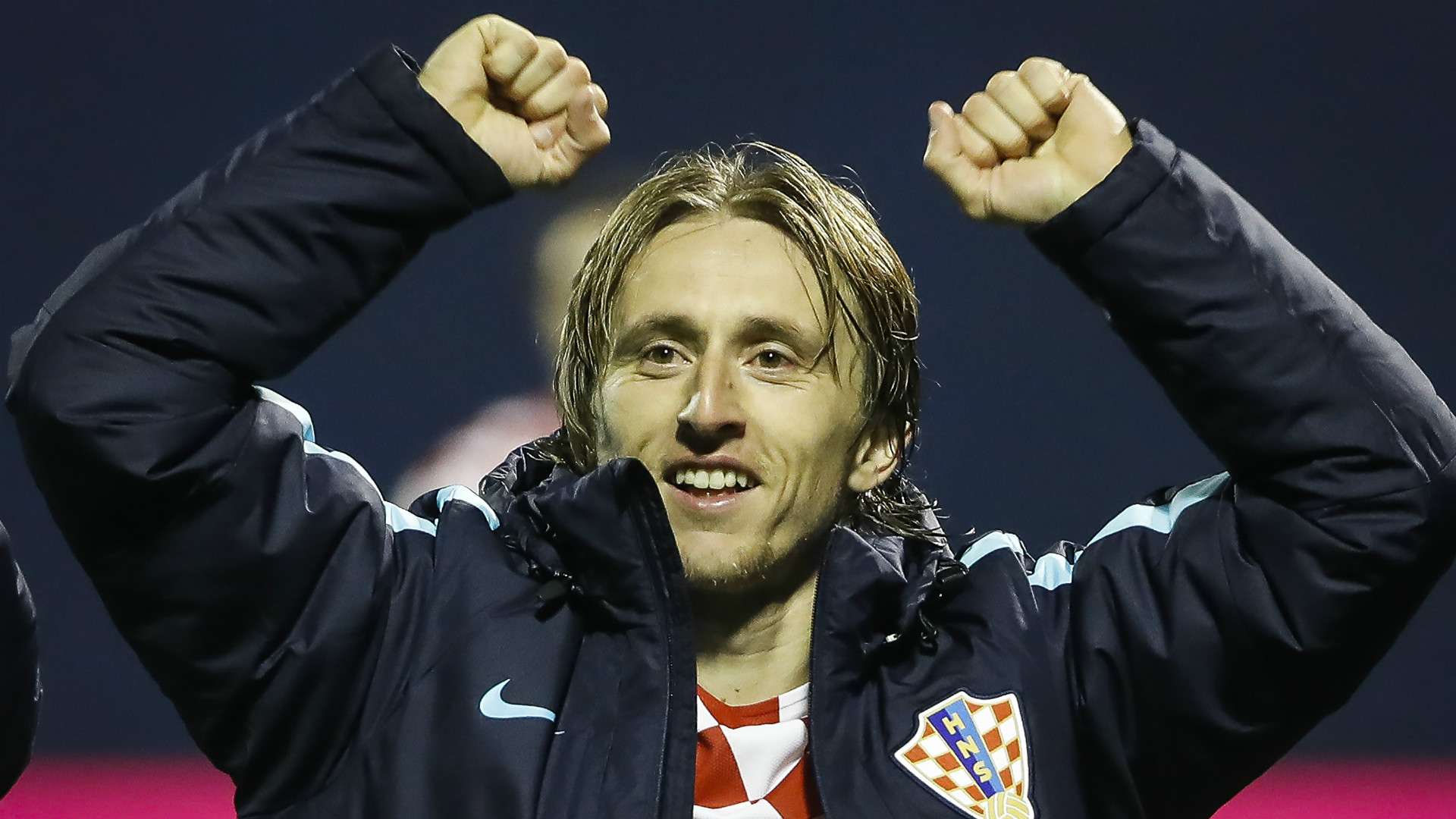Luka Modric is getting better with age. The Real Madrid midfielder recently featured in FIFPro's team of the year at the gala for The Best and he finished third in this year's Goal 50 vote, behind only Cristiano Ronaldo and Gianluigi Buffon. He really is that good.
The Croatia captain has helped Los Blancos to three Champions League titles over the past four seasons, since joining from Tottenham in the summer of 2012. Right now, he is probably the world's best midfielder. However, the road to the top was not always smooth.
Modric was born on September 9, 1985, in the city of Zadar, but grew up with his family in the nearby village of Modrici. It is common in Croatia for villages to take the name of a family, but years later, Modric would make a name for himself far beyond his homeland.
He was named after his grandfather Luka, who was killed as Serbian military troops took their village in December 1991. After that, Modric and his parents moved to Zadar, where they lived as refugees in Hotel Iz (where some fans wrote graffiti against Luka earlier this year, after he testified in court in a trial against Zdravko Mamic, in favour of the former Dinamo Zagreb director).
Next Match

As a young Zadar talent, at the age of 10 he and Mario Grgurovic went on trial to Hajduk Split. However, Hajduk scouts considered him too slight and too weak to become a top-level footballer.
"We met as kids in the Zadar youth team, we were together briefly at Hajduk and always in the Croatian youth teams," Grgurovic told Goal . "I was rated as a bigger talent at the time, but that is football... some bigger talents than Luka and I failed to make a career."
The young Grgurovic was accepted by Hajduk, while Modric was rejected and he said: "As we were finishing elementary school, we played some games for Zadar and beat Hajduk. That is when the Hajduk people invited me to come. Luka came to Hajduk about half a year later and only spent 15 days there.
"I can't say he failed at Hajduk... you can't see all of a boy's qualities in such a short period. But the fact is he returned to Zadar and a few years later he went to Dinamo. That is where he became a player.
"As a kid, he was a normal boy and did nothing to stand out off the pitch. But he was only interested in football. I don't believe people who claim they knew Luka would become top class after seeing him play as a kid. Nonsense! Only after he become Dinamo's leader was it clear he would become a top player."
Later, Tomislav Basic, a football expert from Zadar, recommended Modric to Mamic and Dinamo, where Luka went in 2000. Basic was considered as the midfielder's football father, and he has always been grateful to him. Even when Modric became a Real player, the two kept contact until Basic passed away and Luka attended his funeral on the small island of Vir, near Zadar, in February 2014.
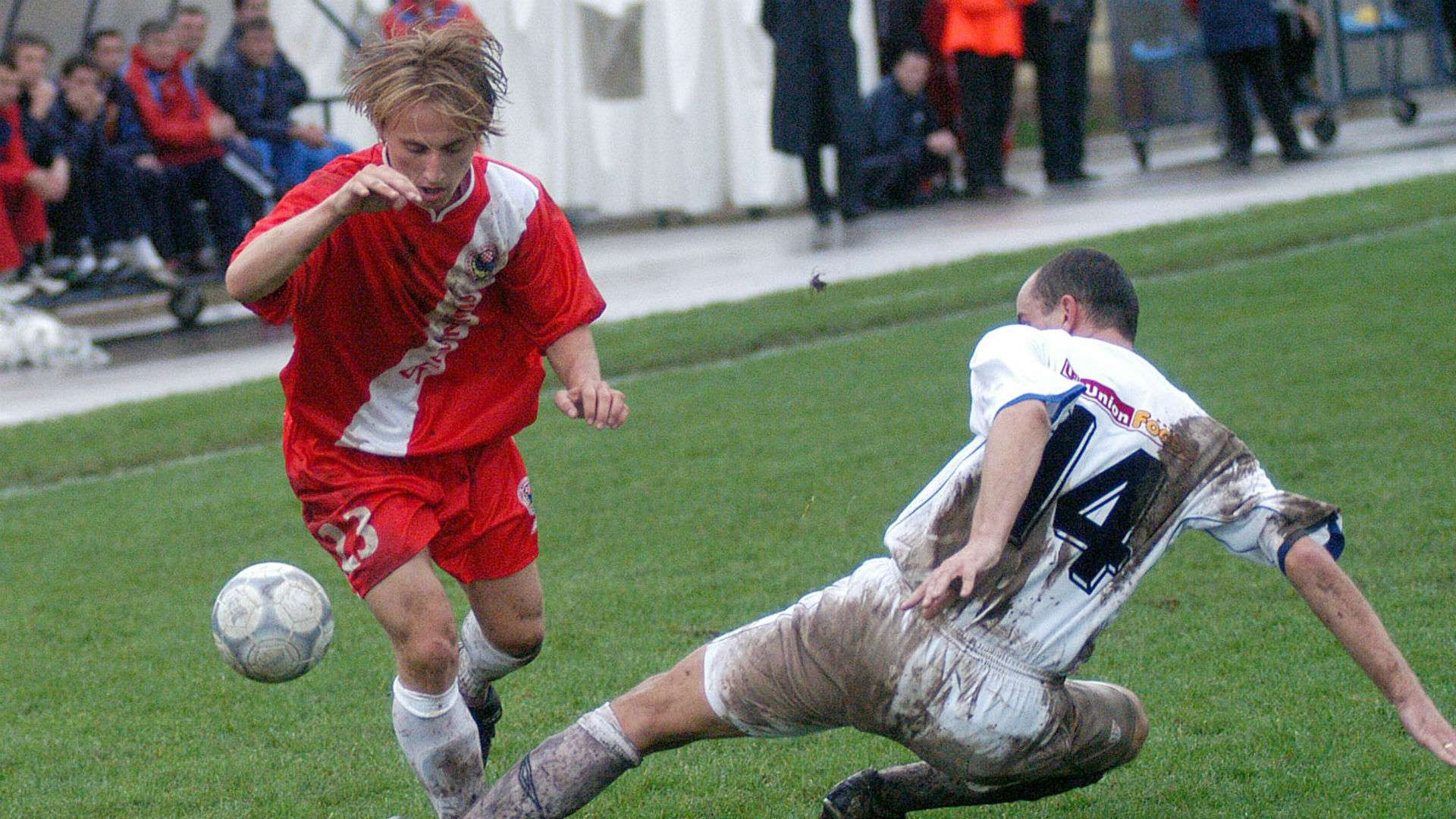
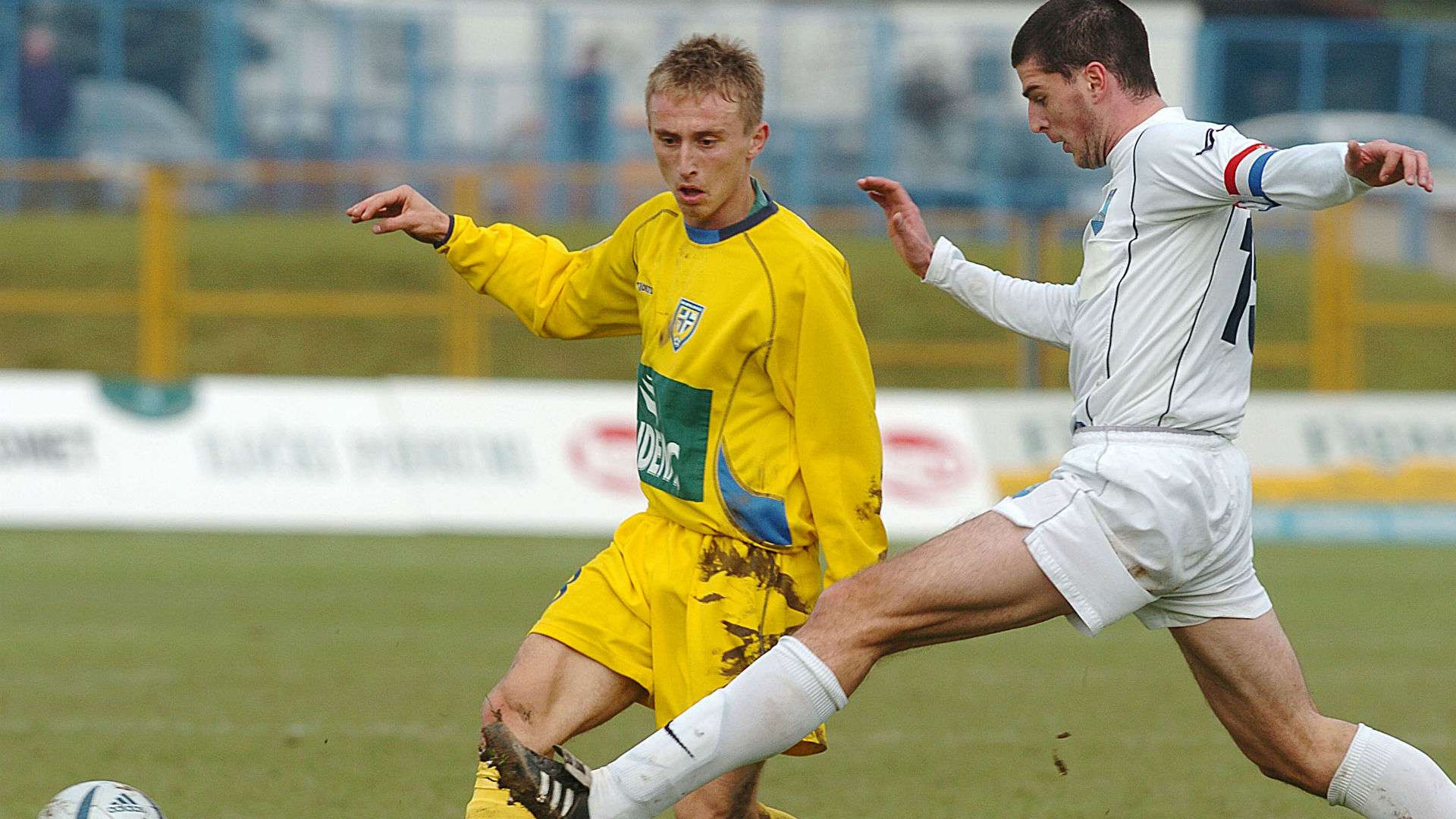 Goran Stanzl/Pixsell
Goran Stanzl/Pixsell
The move to Dinamo was key, but it was on loan at Inter Zapresic that Modric began to shine, helping the smaller side fight for the title that season, although they ultimately finished second after Luka returned to his parent club in December.
"He arrived together with [Vedran] Corluka and [Hrjoje] Cale and I told them they had to earn their place in the team and if they manage that as 18-year-olds, they will become good players," Inter's former coach Srecko Bogdan told Goal .
"Luka won his place in the starting line-up after only one month. I told him just not to be afraid, I stood behind him, it didn't matter if he played well of not for three or four matches. I wanted to see him work hard, to fight, and with him, that was never a doubt.
"Even then, he was similar to today: if he played below his level, the whole team was below its level. In my Inter, he played behind the striker and regularly entered the opponent's box. His weaknesses? He was weak in duels, but again so slight that he avoided duels very well.
"He always worked for the team and I am sure we would have become champions if he had stayed until the end of the season, as we initially agreed with Dinamo. With me, he never played as a defensive midfielder. I wanted him closer to the box. All his team-mates loved him, he was fair and honest and that is always appreciated. And on the pitch he was always the best."
Bogdan believes Modric honed his talents on the streets and says it is hard to imagine Croatia producing another player like Luka these days.
"He was very confident and knew his goal," he said. "It was a pleasure to work with him. Today I work with kids at Inter and it is much harder. While Luka was growing up, kids grew up playing football in the streets and we only had to shape them as players. Today kids don't play as much on the streets any more."
 Getty
Getty
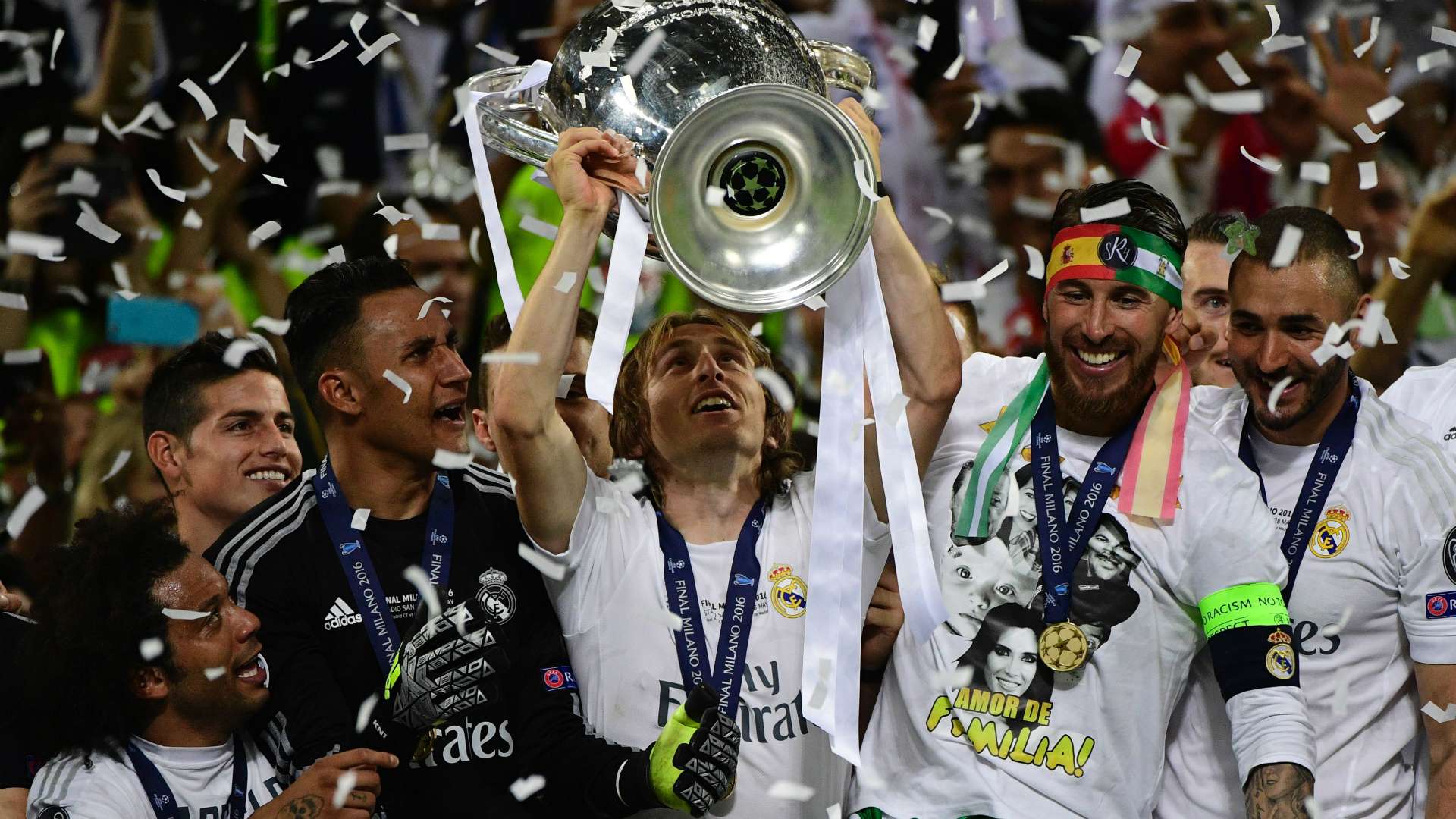
And despite his tremendous talent, he says it was only later when he realised that Modric was destined for real greatness. "It is hard to say that we expected him to become the player he is today," he said. "I'd say only when he became the main player of Tottenham did we recognise that he was a wonder player."
Modric also had a spell on loan in Bosnia and his coach at Zrinkski, Stjepan Deveric, told Goal : "With me, even in the Dinamo youth team and later at Zrinjski, Luka was a central midfielder. He was creative and had that extra talent to always find a way to impose [himself].
"He was technically perfect and even the hard pitches in the Bosnian league didn't bother him. He became a leader and it is rare to have an 18-year-old leader in the team. He became much tougher in the Bosnian league.
"He was very professional and very quiet. He would impose [himself] on the pitch but on other occasions, you would hardly notice him."
And he added: "Another very important reason for his great career is that he grew up without getting almost any injuries. It would have been hard to say back then that he would become the player he is today. Some players get satisfied as soon as they earn their first money after going to a big league, while only the best survive and go all the way. As Luka has done."
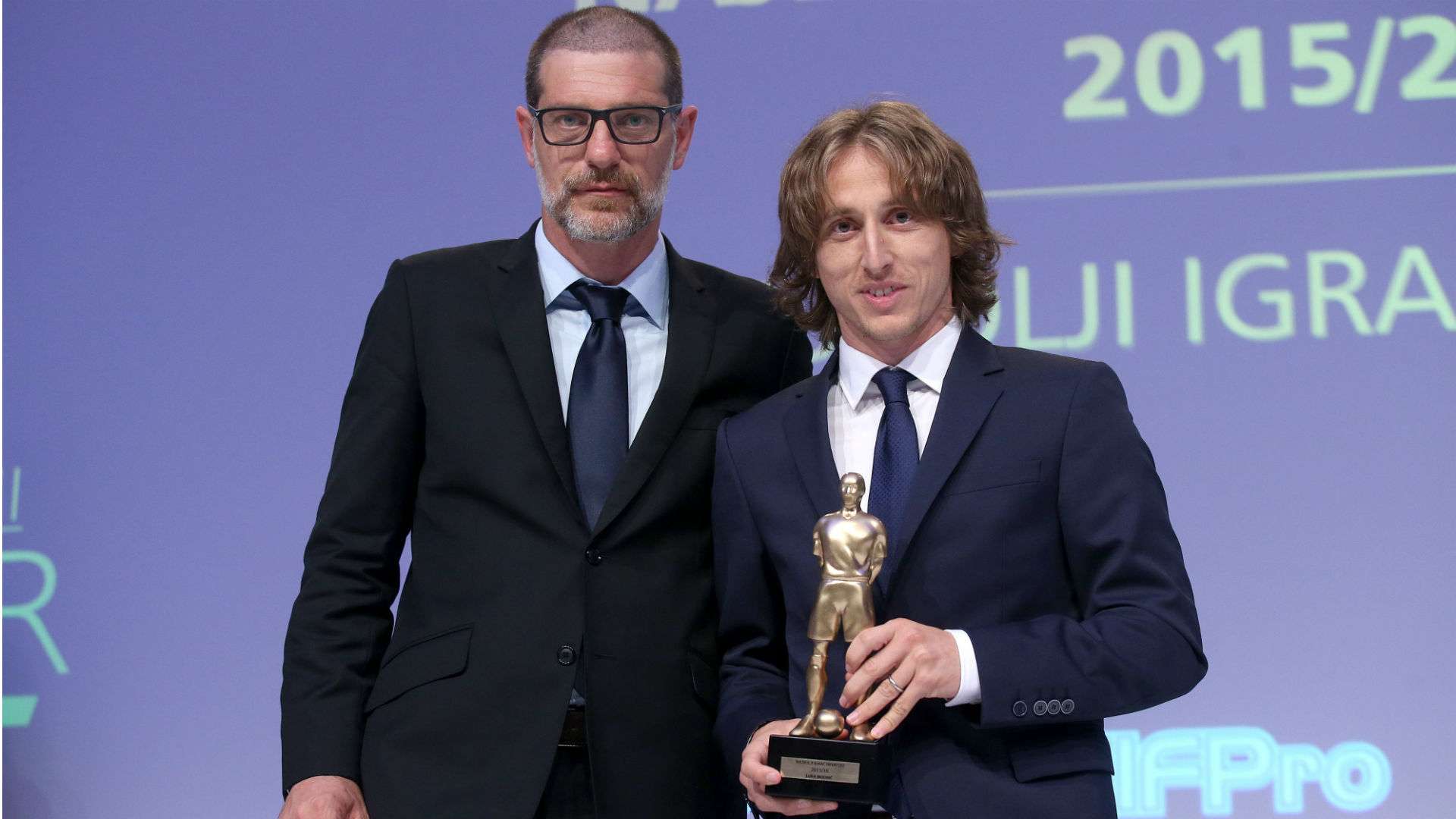
During his time at Dinamo, Slaven Bilic was also a big influence in Modric's early years. The former Croatia coach - recently sacked by West Ham - gave Luka a key role in the Under-21 team at international level and later the senior side. And the midfielder often referred to him as the best coach he ever had.
Modric made his full Croatia debut in March 2006 against Argentina and Messi. Luka was outstanding as the Croats won 3-2 and he played a significant role under Bilic as the national side sealed qualification for Euro 2008, at the expense of England.
Although he was voted in the team of the tournament in that competition, Modric has not always received positive reviews in Croatia and it is only over the past couple of years that he has been truly appreciated in his homeland. Some said he did not score much, even though that has never been his main role, while others claimed he played better for his club.
These days, however, it seems everyone is on board. And even though he has scored just 11 goals in over five seasons at Real Madrid, he is so highly thought of at the Santiago Bernabeu and also in his homeland.
Now 32, he cannot go on forever, but fans of Los Blancos and Croatia will hope that Modric can continue to produce his midfield masterclasses for a few more years yet.
